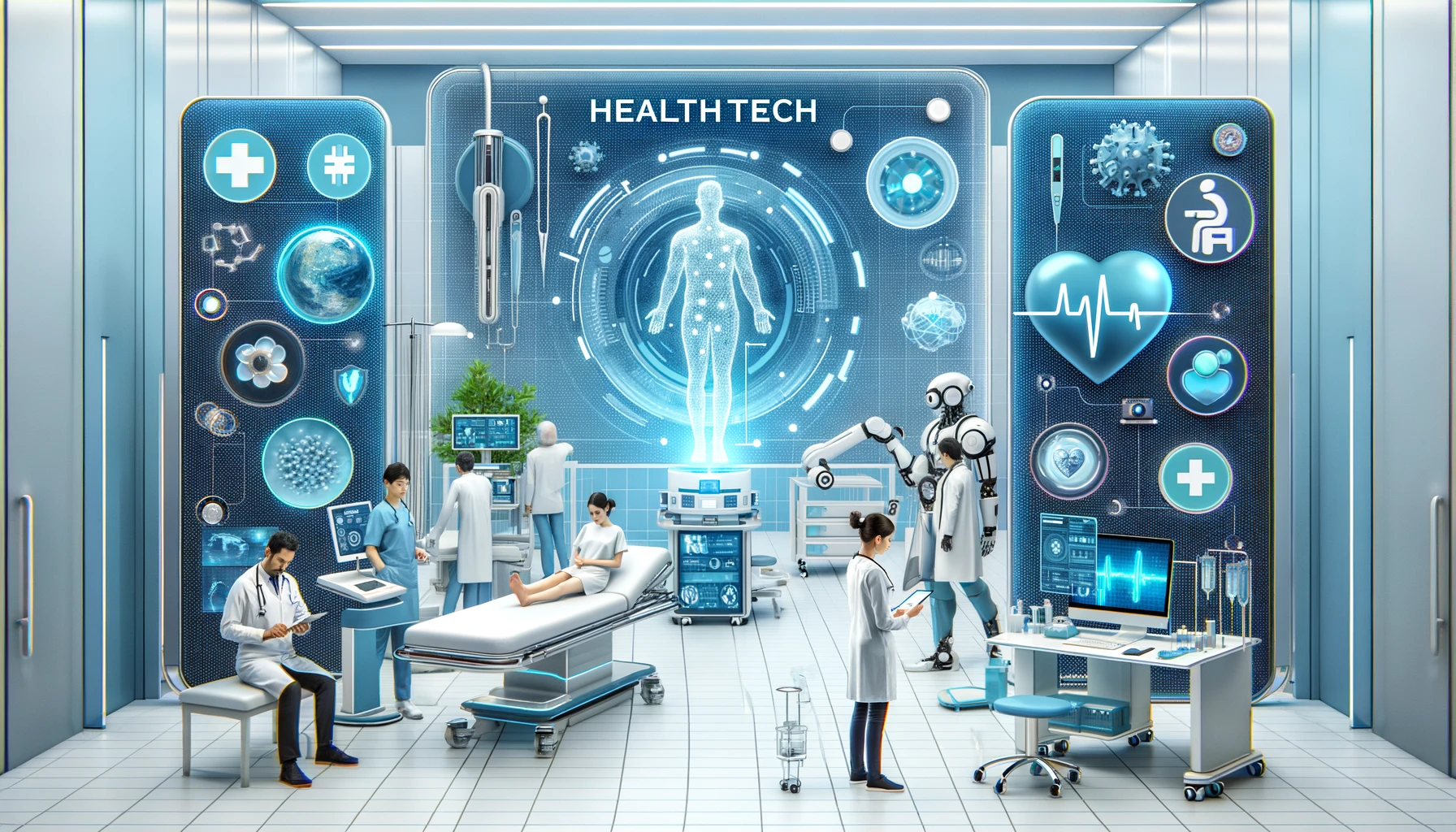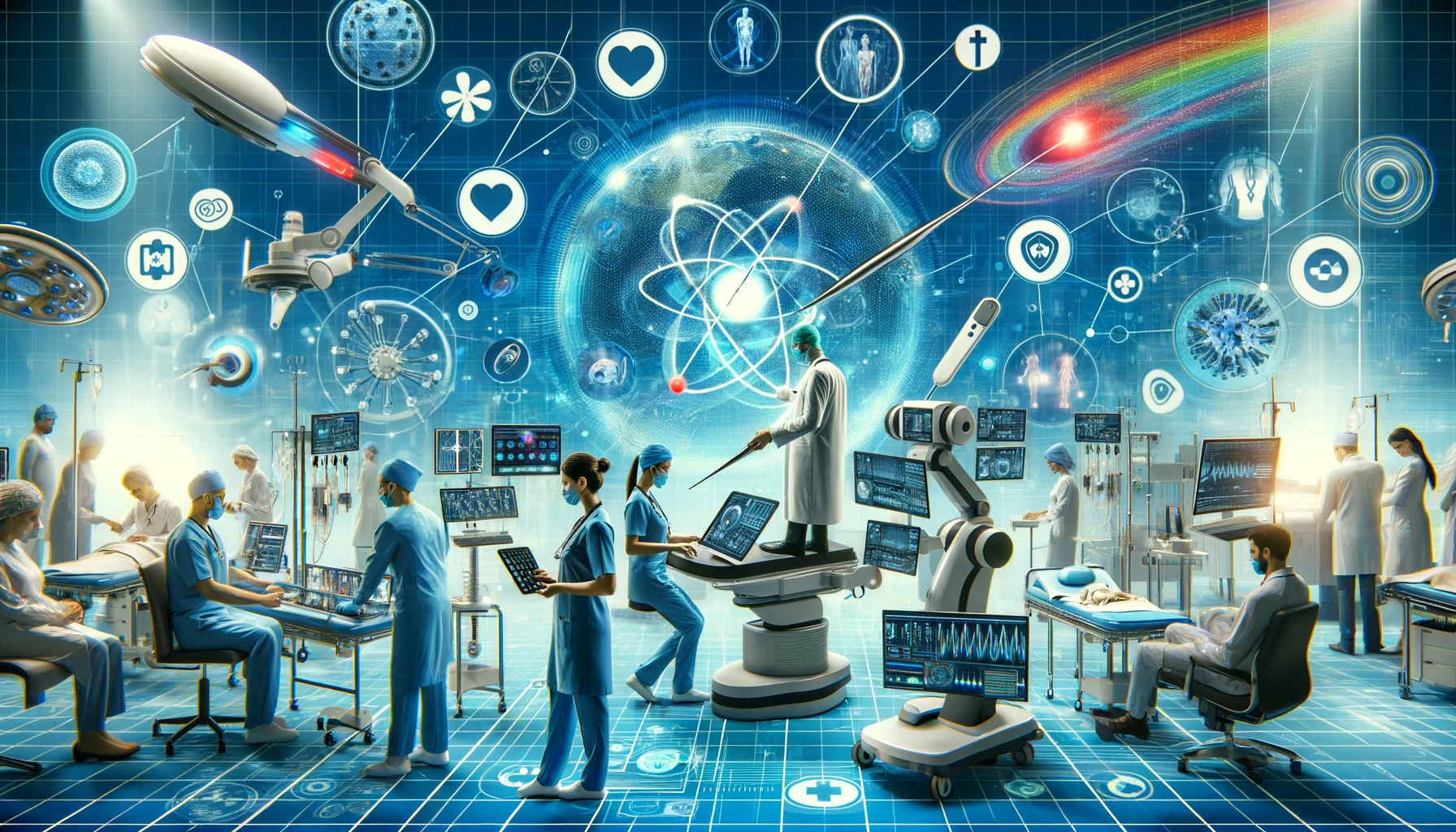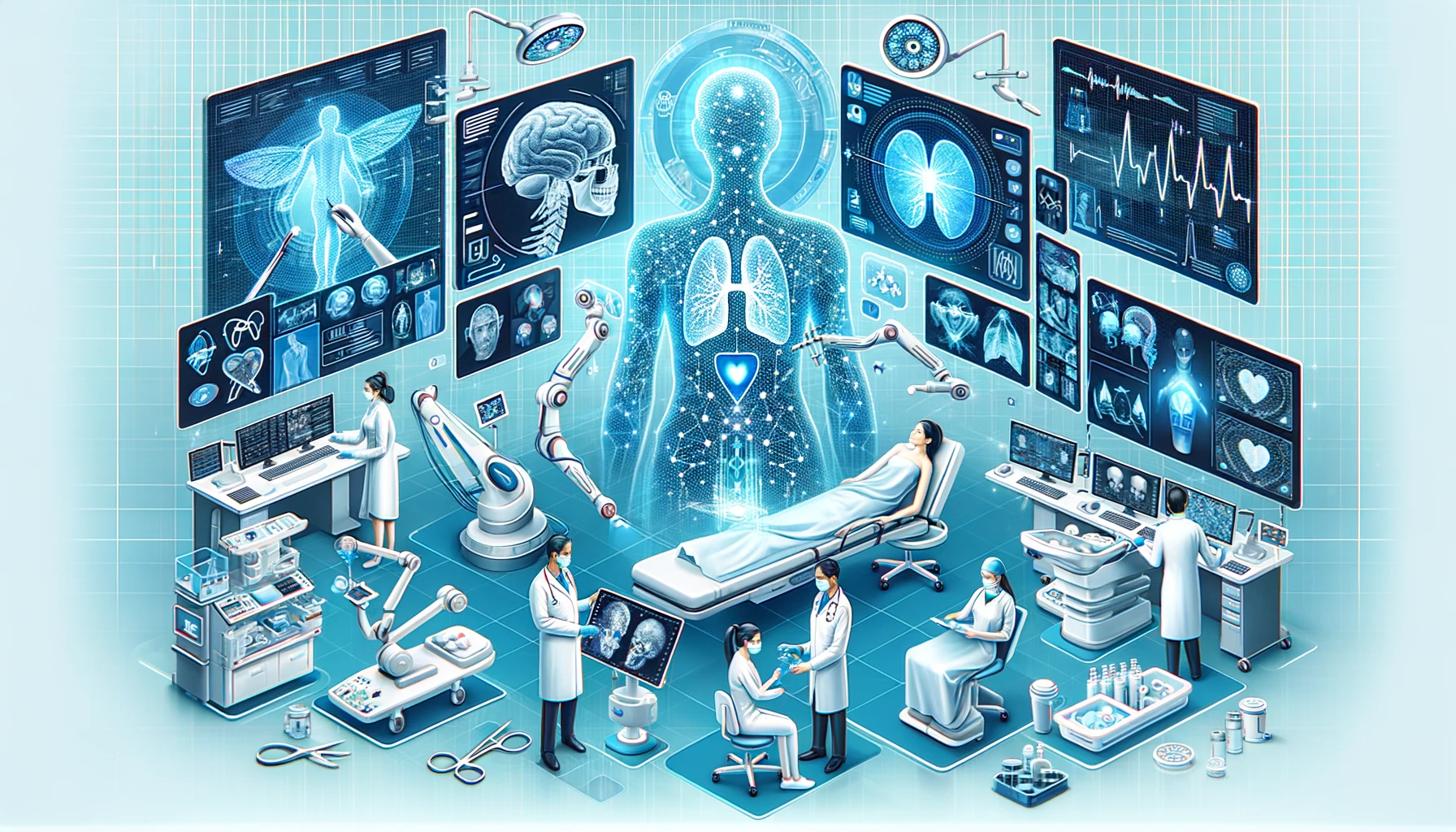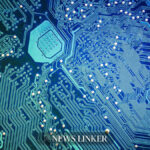HealthTech, or health technology, represents the convergence of healthcare and technology to enhance all aspects of the healthcare system. This dynamic and rapidly evolving field encompasses a diverse range of digital products and services aimed at improving health outcomes and healthcare delivery. Key elements of HealthTech include telehealth services, mobile health applications (mHealth), wearables, health analytics, digitized health systems like electronic health records, and clinical support tools.

HealthTech’s primary goal is to facilitate better, more efficient, and accessible healthcare for individuals and communities. It includes technologies outside traditional hospital settings, such as telemedicine consultations, mobile technologies for patient engagement, and cloud-based solutions for healthcare management. By integrating innovative technologies into healthcare practices, HealthTech is reshaping healthcare delivery and patient experience, highlighting a significant shift towards patient-centric care.
What is the Difference Between Digital Health and HealthTech?
HealthTech and Digital Health, while often used interchangeably, have subtle distinctions. HealthTech refers broadly to the application of technology in healthcare, including a wide array of products and services such as medical devices, software, wearable devices, and telehealth. It’s about leveraging technology to enhance healthcare delivery, improve diagnostics and treatments, and contribute to better health outcomes. Digital Health, on the other hand, is a subset of HealthTech, focusing specifically on technology that enables remote healthcare services.
It includes areas like Software as a Medical Device (SaaMD), mobile health applications, Electronic Health Records (EHRs), and telemedicine. Digital Health is primarily concerned with employing digital tools to manage health and wellness. While Digital Health is part of the broader HealthTech landscape, it specifically emphasizes the digital aspect of technology in improving health and well-being. HealthTech encompasses a wider spectrum, including both digital and physical technologies in the health sector.
Is it Healthtech or Medtech?
HealthTech and MedTech, though related, have distinct definitions and applications within the healthcare industry. HealthTech, also known as digital health, primarily focuses on medical technology and software solutions that facilitate personal health management. This includes telemedicine, health-monitoring apps, and wearables, which bring medical services directly to individuals. MedTech, in contrast, encompasses technologies aiding healthcare professionals in diagnosing and treating patients. This includes advanced medical devices for imaging, surgical assistance, and blood sugar monitoring.

In essence, HealthTech provides tools for individuals to manage their health through digital platforms, enhancing the convenience and accessibility of healthcare services. MedTech, on the other hand, equips medical professionals with sophisticated tools and equipment for effective patient care in clinical settings. Both fields, while distinct, are integral in advancing healthcare through technology, each serving different aspects of patient care and healthcare management.
What is the Best Tech Job in Medical Field?
In the evolving field of healthcare, technology plays a crucial role, creating a wide range of job opportunities for those with both technical skills and an interest in healthcare. The best tech job in the medical field is subjective and depends on individual skills and interests. However, popular healthcare tech jobs include Medical Records Technician, Health Information Technician, Clinical Informatics Specialist, Healthcare IT Consultant, Health IT Security Specialist, Health Information Clerk, Healthtech Software Engineer, Healthcare Data Analyst, and Radiologic Technologist.
Key qualities for success in these roles include medical terminology knowledge, technical expertise, teamwork abilities, attention to detail, and strong communication skills. Educational paths vary, with some positions requiring only an associate degree, while others need a background in health information, computer science, or nursing. Opportunities exist in various settings, from hospitals and clinics to insurance providers and government agencies. Overall, healthcare technology professionals share a common goal of improving patient care and are essential in the rapidly growing health services and computer science fields.
What is the Highest Paying Healthcare Tech Job?
The highest paying healthcare tech job, as highlighted in a comprehensive review of various non-physician roles in the healthcare industry, is that of a Pharmacist. Pharmacists, who require a Doctor of Pharmacy degree, are tasked with dispensing prescription medications to patients and providing guidance on their safe use. Their responsibilities also include conducting health and wellness screenings and giving immunizations. As of 2018, the median salary for a pharmacist is $126,120, with a predicted employment growth rate of 6% between 2016 and 2026. This role stands out for its high compensation, significant impact on patient health, and the specialized educational path required.
How is AI Used in Healthcare?
Artificial Intelligence (AI) is revolutionizing healthcare with its diverse applications aimed at improving patient care and healthcare operations. Here are key ways AI is being used in healthcare:
Disease Detection and Diagnosis: AI significantly enhances disease detection, particularly in its early stages. For instance, AI algorithms have shown higher accuracy than humans in diagnosing diseases from imaging studies. They can analyze mammograms 30 times faster with 99% accuracy, reducing unnecessary biopsies.
Drug Development: AI streamlines the drug discovery process, reducing time and cost. It assists in identifying potential drug compounds and predicting their toxicity, bioactivity, and other properties, which traditionally require extensive physical testing.

Patient Engagement and Management: AI chatbots and virtual nursing assistants provide 24/7 support to patients, offering medication guidance and scheduling doctor visits, thus relieving clinical staff for more critical tasks. Predictive analytics in AI helps in identifying patients at risk, aiding in preventative care.
Medical Training: AI enables more naturalistic simulations for medical training, providing trainees with realistic scenarios and adaptive learning experiences.
Administrative Efficiency: In administrative tasks, AI automates routine processes like paperwork, data entry, and billing, increasing efficiency in healthcare organizations.
Surgical Assistance: AI-driven robots assist in surgeries, working around sensitive organs to minimize risks like blood loss and infection, leading to more successful outcomes.
Healthcare Fraud Detection: AI helps in identifying unusual patterns in insurance claims, thus preventing fraud in healthcare, which is a significant financial burden.
Enhanced Healthcare Communication: AI improves communication between patients and healthcare providers through natural language processing, ensuring clearer patient-provider interactions.
Continuous Health Monitoring: AI integrates with wearable technology, allowing continuous monitoring of health conditions and providing real-time data to healthcare providers for better disease management.
Healthcare Data Management: AI assists in gathering, storing, and analyzing vast amounts of healthcare data, including electronic health records, to provide insights for better treatment and disease management strategies.
These AI applications not only make healthcare more efficient but also improve patient outcomes and reduce costs, signaling a transformative impact on the healthcare sector.
Health Tech Series
1- What is meant by HealthTech?
2- What is the difference between biotech and HealthTech?
3- What does Tech mean in medical?
4- What is the difference between MedTech and healthcare?
5- Is MedTech a life science?
6- What is the life of a medical technologist?
7- Do Medtech draw blood?
8- How is AI used in healthcare?
9- How do you spell HealthTech?
10- Is medicine a form of technology?










